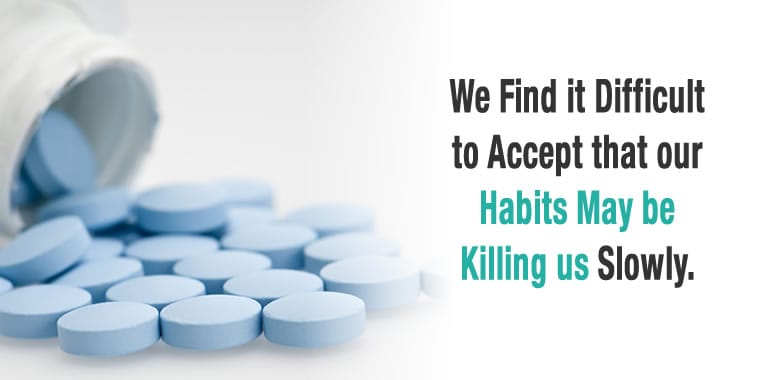
I distinctly remember when my 17 year old teenage son wanted to go to the movie theater with me: I knew it was a rare opportunity, so I didn't want to miss it. The problem was, though, that we ended up watching a movie one wouldn't want to watch even after the film goes to DVD or Netflix… “Bad Boyz”. Don’t misunderstand me, please: I don't intend to critique the film, really. In fact, I enjoyed watching it, not least of all because I was with my son. And though it isn’t my favorite movie, there are one or two things that stuck out for me, the most interesting of which is this one particular line: "Kill him slowly".
Hmm. Now why would this stand out for me? Let me give you some context first: the female villain wanted to make sure the main character died slowly and painfully. Why? Presumably because she wanted to cause him as much pain as possible. After all, dying a quick death is better than dying slowly. Makes sense, right? I thought this quite ironic. In fact, we are all concerned about immediate threats like mass shootings or viruses, etc., but, we aren’t aware of things that kill us slowly and painfully.
Let’s think about this powerful idea via the use of a story. Recently, one of my patients complained about a man he saw outside. He explained that this particular man wore a mask to protect himself from viral infection, yet he removed his mask in order to smoke. Now, we all understand the harmful effects of cigarette smoking and alcohol abuse, as well as the resultant risks of lung or liver cancer, so why did this man prioritize immediate safety over long-term safety? Not so many years ago, people believed that filter tips would protect them from the dangers of tar and nicotine. In fact, people still cling on to the belief that those little changes will prevent damage in the future.
At the end of the day, it’s human nature. We find it difficult to accept that our habits may be killing us slowly. In fact, it goes further than that: big-pharma, big companies, tobacco barons, and various other large corporations spend millions upon millions every year, just so that we believe we’re safe. It’s time to take note. That’s why we are going to talk about some of the things that are killing us slowly, that is, those potential slow-killers that are going to be very obvious in the future, possibly within just a few years of discovery.
Red/Processed Meat
Extensive, quality research has shown an increased risk of stomach, rectum, bladder, and colon cancer in connection to a diet which incorporates red and/or processed meats. That same research goes on to suggest that white meat and fish tend to reduce the chances of illness. For those who are meat lovers, though, nothing tastes better than a juicy steak or BBQ rib. Unfortunately, it is time to re-think your meal options. Red and processed meats promote harmful gene expression, also known as damage to your DNA. It sounds scary, I know. And in fact, we should be scared. You see, damage/repair and good/harmful gene expression happens all the time, but the problem occurs when the balance gets out of control. For this reason, there is enough evidence to include a warning on processed meat such as sausage, bacon, and cold cuts, much akin to those on cigarette boxes.
My advice: avoid these processed foods as much as you can. Try these healthier alternatives instead:
And when it comes to the preparation of meat, heed these precautions
- 1Removing fat and blood (juice) is important, because polycyclic aromatic hydrocarbons (PAHs), which cause changes in DNA, can be formed when fat and juices start smoking over direct heat. Scientists found that frequent eating of well-done, fried, or barbecued meats was associated with increased risks of cancer.
- 2Marinate meat with citrus and spices, as this may reduce Heterocyclic amines (HCAs), which are cancer causers.
- 3Cook slow, that is, on a low temperature, and turn meat over frequently: this may reduce the production of HCA’s significantly.
Screen Time
This is a serious problem for people of all ages, ranging from, for example, my 3 year old niece, all the way to my 78 year old father. And if I’m being honest… me too. The truth is, there is a strong relationship between screen time and depression, as well as screen time and obesity, both of which can cause all kinds of medical problems. The odds do not favor us… in fact, we all carry a TV in our palm! Smartphones are very handy, yes, and the smaller the screen, the cooler we are, right? Well, not really. The smaller the screen, the more we actually slouch, thereby leading to neck pain and back pain, as well as balancing issues. A balance discrepancy could lead to a fall and broken bones.
There are a few things we hardly ever think about, like how much big companies invest in the psychological aspects of this type of technology. Companies that make billions of dollars are not interested in helping people control addictions to TV or smartphones. In fact, they often hire psychologists to research ways in which products can be altered to make people use them even more often! Scary. There is a reason why IT companies donate tablet computers to elementary schools: they want our kids and grandkids to start using them as early as possible. Lifelong customers can be recruited at an early age. Nowadays, it seems as though everyone is living two realities. We always see people texting and driving, or cross-guards holding stop signs in one hand and smartphones in the other.
Here’s a fact you may not have known: teenage pregnancy went down since the invention of the iPhone! And whilst this may seem positive, there is a negative side to it: teenagers no longer socialize; they post pictures online, thereby avoiding personal contact. Smartphones and tablets are destroying our ability to form real, permanent, profound interconnected human relationships. This bizarre state-of-being results in people feeling depressed and miserable, as they constantly compare their own lives to the online versions they perceive on the web. None of it is real... it is going to kill us – slowly. It is going to affect our physical and psychological wellbeing.
Pollution
We take our clean air in San Diego for granted. Environmental factors play a big role in our wellbeing, and they become integral when we decide where to live, travel, or where to work. Even though the overall condition in San Diego is not bad, we need to pay attention to the environment around us. Living closer to a major highway, working outside – where traffic is heavy – working at a gas station, or being exposed to pesticides, herbicides, or any other chemical, can drastically affect our health. Often, people who have asthma or other respiratory problems have only one option: to move to less polluted areas.
Shiftwork
Shiftwork, particularly night shifts, causes a disruption in one’s biological rhythms, thereby affecting social and family life. Researchers point out that the disruption of normal rhythms can cause sex hormone and melatonin secretion, both of which can cause breast or prostate cancer as a result. Furthermore, research also indicates that such alterations in bio-rhythms affect human DNA, thereby giving way to disease. Moreover, when you work at night, it is hard to meet with friends and families; not having a healthy, loving social life negatively affects our health in many ways.
Lack of Social Activities
We all know that a sedentary lifestyle comes with medical complications such as obesity, diabetes, heart disease, etc. Staying active and working out helps, but we need to do more than that. We need to be social… offline. Please don't give up on this aspect of your lifestyle because of a few bad experiences. Find a space in which you can meet people with an open heart and mind, safely. A few of the happiest people I know do many activities outside of their houses: one goes to a prison and teaches classes to the prisoners, while the other goes to a school in a poor neighborhood and helps young scholars and their teachers. Learn from their examples: go to a local school, church, volunteering event, community center, or gym, and meet people; you are going to meet a friend who will last for the rest of your life. When you have a good time with friends and family, your positive gene expression increases tremendously.
Overuse of Pain Medication
One in three Medicare beneficiaries receive an opioid prescription, and one in four of them became long terms abusers of the drug. And what's more, did you know that strong painkillers, such as opioids and opiates, triple your chances of feeling depressed? While the United States makes-up 5% of the world's population, we consume more than 80% of all the opioids prescribed worldwide. More than 100 people a day die due to opioid abuse in America alone. This is such a crisis that life expectancy in America has consistently decreased for two years. This is the No. 1 slow but painful killer. Opioids are affecting the realization of long, strong lives! How did America get to this point? How have the last two decades seen a rapid rise in disability claims and a horrendous shortening of overall life expectancy? Opioid addiction has now been classed as an epidemic. But, it's no wonder, really, since these tablets rob individuals of their independence, mobility, and ultimately, lives.
The above scenarios are all part of a world in which we die slowly. My article is not meant to be read as a negative piece, rather I want you to reflect on the ideas herein and avoid falling into the same pitfalls as many of those around you. Live life to the full – don’t die slowly because of habits and mindsets you’ve held for years. Break free and find a way out of your pain, sadness, and hopelessness. There is a way out. I want you to live a long, happy, joy-filled life, free of pain and heartache. Avoid industrialized areas, spend quality time with family and friends, do something truly enriching, eat well, and remember to smile.
Until next time, I wish you happiness.
- Stop treating people like dead - March 25, 2024
- Stop Asking Me ‘Where are you from?” - March 25, 2024
- You Need the Right Diagnosis, not the Right Technique - November 25, 2020


